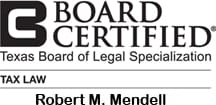Mergers and acquisitions: Three tips about due diligence
M&A deals are complex matters. These three basics can help business leaders begin their due diligence.
Mergers and acquisitions are complex legal beasts. When done correctly, these business transactions can strengthen one’s business interests and lead to financial gain. One of the key steps to a successful transaction is proper due diligence prior to the finalization of the transaction.
Three areas to focus on during this period include:
- Finances
- Tech
- Customers
The remainder of this post will delve into these areas and provide additional guidance.
Finances
This is likely the most obvious of the three areas of due diligence noted above. It is important to carefully review the financial situation of the business in question. Gather financial statements for the last three years, if audited review these documents as well. Request a schedule of liabilities and financial obligations as well as a schedule of the business’ inventory and accounts receivable.
Take all physical assets into consideration as well. This includes the property the business conducts operations, tools of the trade and equipment.
In addition to financial liabilities and debts, look into whether or not the business is facing any current or future litigation.
Tech
The technology owned by the business can include relatively simple matters, like software. If certain software is required for operations, does the business have the correct licenses? It also includes much more nuanced areas, like intellectual property. What patents, trademarks and copyrights does the business hold, both domestic and foreign?
Customers
Why consider a merger and acquisition deal; likely because it will expand one’s market. As such, it is important to get acquainted with the target company’s customer base. Get a schedule of the business’ largest customers for sales over the last two years. Review agreements with customers as well as schedules of orders that require fulfillment.
Etc.
Unfortunately, this is just the surface of things to review within these three broad categories – and there are many more areas to take into consideration before finalizing a deal. Areas like the business’ current work staff and contracts as well as basics like the articles of incorporation and bylaws are all important. In some cases, it is favorable to have members of the previous business stay on during a transition period. Such details can be negotiated into the deal.
Due to the magnitude of the process, it is wise to seek legal counsel. An experienced mergers and acquisitions lawyer can help to mitigate the risks that come with these transactions.



